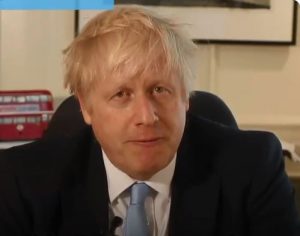
LONDON, United Kingdom. The UK government is to create a new £1bn fund aimed at eradicating malaria and other infectious diseases.
The Ross Fund will be run in partnership with US philanthropists, Bill and Melinda Gates.
It is named after Sir Ronald Ross who became Britain’s first Nobel Prize winner in 1902 for his discovery that malaria is transmitted by mosquitoes.
The number of people dying from malaria is falling but a child still dies from the disease every minute in Africa.
Ministers say the partnership with the Microsoft founder and his wife Melinda marks a “fundamental restructuring” of the UK’s aid budget.
The £1bn will come from the UK’s overseas aid budget over the next five years.
Of the total:
£115m is earmarked for research into new drugs, diagnostics and insecticides for malaria, TB and other infectious diseases
A further £188m will be spent on improving biodefences and rapid response systems to fast-spreading epidemics such as Ebola
Chancellor George Osborne said one billion people were infected with malaria and 500,000 children die from the disease each year.
He said the government’s commitment to overseas aid helps to “promote our national security and interests around the world”.
Working with the Bill and Melinda Gates Foundation will help us in “our joint ambition to see an end to this global disease in our lifetimes”, he added.
Mr Gates, co-chairman of the foundation, said eradicating malaria and other poverty-related infectious diseases would be “one of humanity’s greatest achievements”.
“With the combined skill and expertise of British scientists; leveraging the weight of both public and private financing; and the continued leadership of George Osborne and the UK, [the] announcement of the Ross Fund will play a key role in reaching that goal,” he added.
The UK’s International Development Secretary Justine Greening said a “healthy, prosperous world is in Britain’s interest” and that preventing deadly diseases is a “smart investment”.
The “restructuring” plan is expected to be set out by the chancellor in Wednesday’s Autumn Statement.
The international development department is protected from cuts and has seen its budget increase year-on-year since 2010.
The government is expected to continue spending 0.7% of GDP on overseas aid.
A report published in the journal Nature earlier this year showed 663 million cases of malaria have been prevented in Africa as a result of concerted efforts to tackle the disease since 2000.
Researchers from Oxford University attributed the reduction mostly to bed nets. The drug artemisinin and spraying homes with insecticide also played a part.
Credit: BBC




